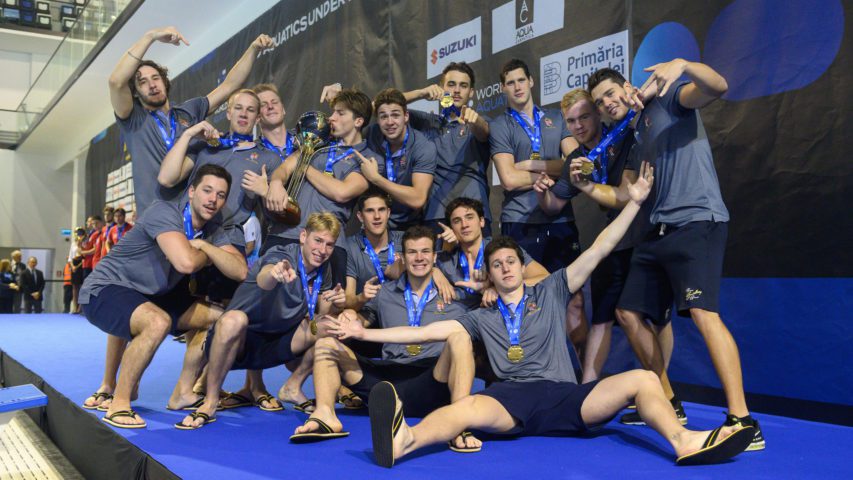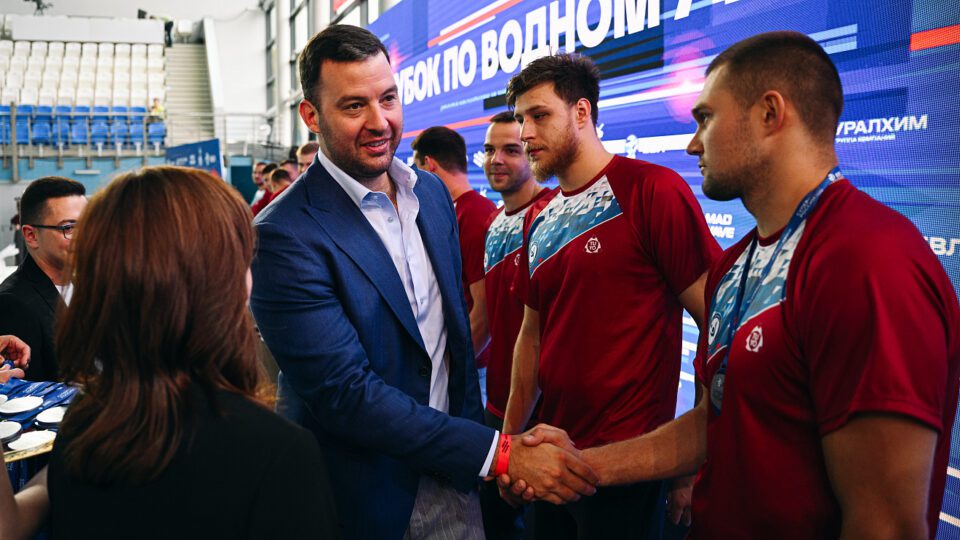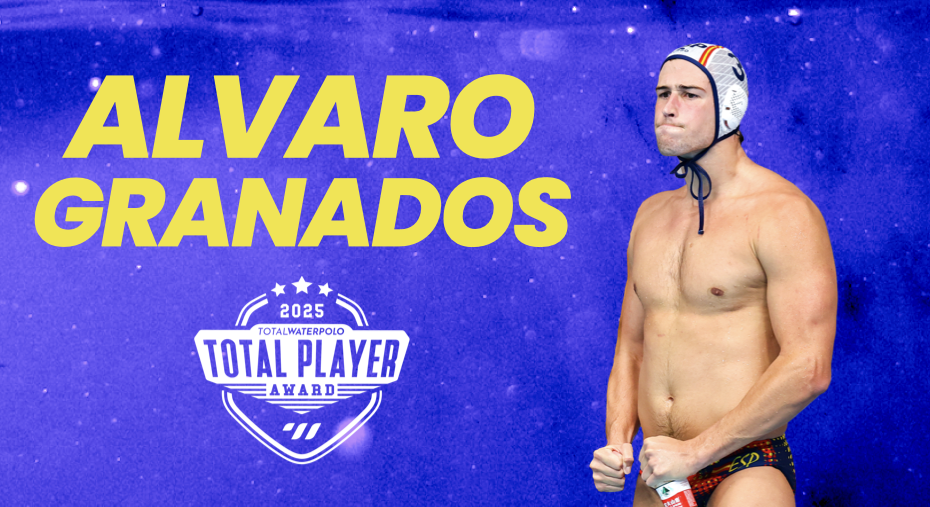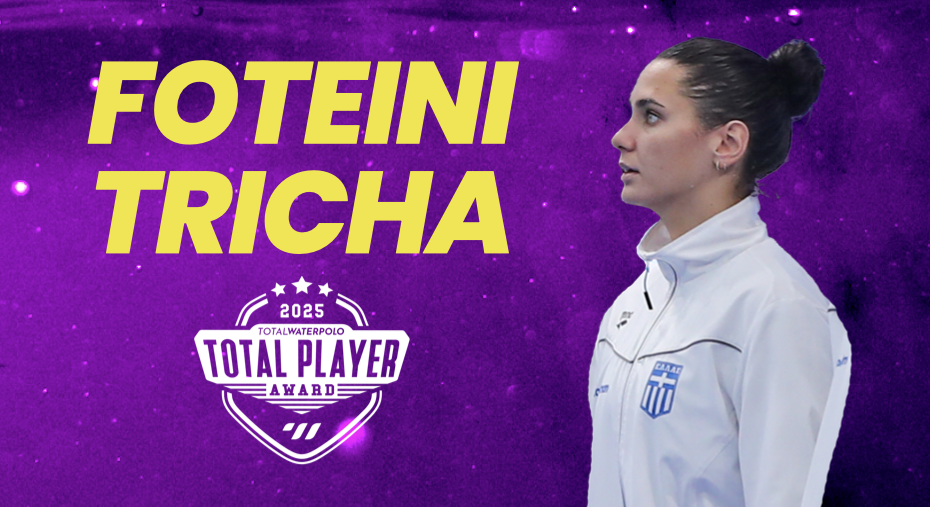Hungary is the new world champion for the junior men’s age category.
The Hungarians beat defending champion Serbia convincingly 12:7 in the final of the 22nd World U20 Championships in Otopeni.
Hungary’s defense was outstanding in the final. The beginning of the game was quite balanced. Serbia was never in front, but the teams were tied at 1:1, 3:3, and 4:4. However, Serbia didn’t find the net between the 13th and the 30th minute. During these 17 minutes, the Hungarians sent the ball into the net seven times, and earned a 11:4 lead.
The gold medal won in Otopeni is the first title of the world U20 champion for Hungary after the 2007 Worlds in Long Beach and the first medal after a long drought that lasted for eight years.
Hungary won bronze in Almaty in 2015 and didn’t reach the podium at the following three editions of the World U20 Championships (two years ago, Hungary finished 4th in Prague, behind Serbia, Italy and Montenegro).
As for Serbia, the Serbs continued their row of medals. They won their eighth consecutive medal at the World Junior Championships. That series has lasted since 2009 and bronze in Sibenik. (All medal winners at the end of the article)
Team USA won its first-ever medal, beating Greece 11:6. The reports of the bronze-meda games and other classification games – HERE
Final standings: 1. Hungary, 2. Serbia, 3. USA, 4. Greece, 5. Spain, 6. Italy, 7. Montenegro, 8. Croatia, 9. Japan, 10. Netherlands, 11.Australia, 12. Romania, 13. Germany, 14. Brazil, 15. Iran, 16. Argentina, 17. New Zealand, 18. South Africa, 19. Peru.
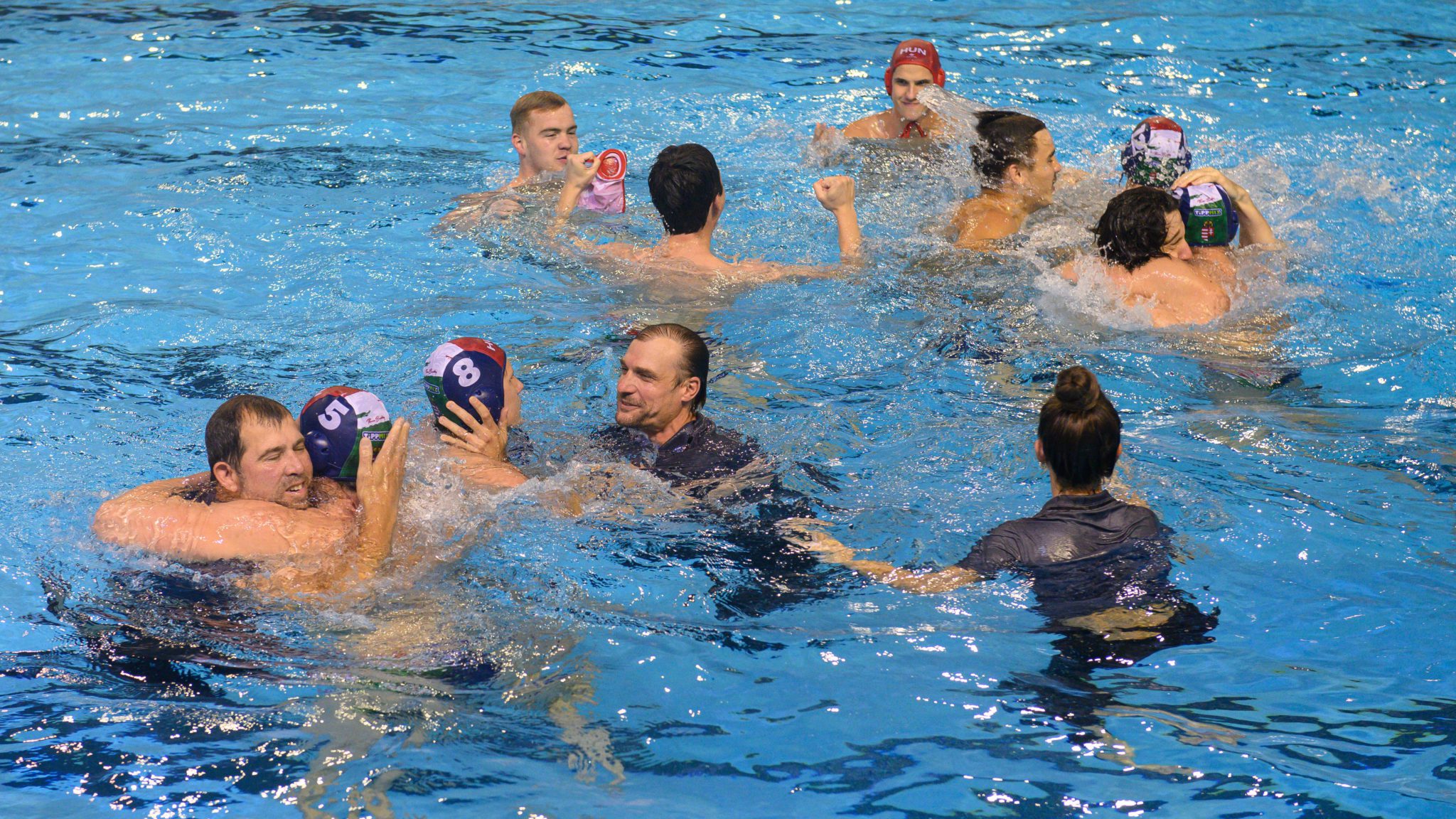
All photos: Romanian Water Polo Federation
The MVP of the Championships: Vasilije Martinovic (Serbia).
The best goalkeeper: West Temkin (USA).
The top scorer: Daichi Ogihara (Japan) 32 goals.
The best coach: Robert Kovacs (Hungary).
VISIT TOTAL WATERPOLO ARENA FOR ALL SCORES OF THE WORLD U20 CHAMPIONSHIPS
2023 World U20 Championships, Otopeni, Day 8
Final
Serbia – Hungary 7:12 (3:3, 1:2, 0:3, 3:4)
Serbia: Pajkovic, Jaukovic, Dimitrijevic, Gladovic 1, Kojic, Gavrilovic, Bozovic, Urosevic 2, Martinovic, Brescanski 1, Stanic 3, Kovacevic, Virijevic. Head coach: Korolija.
Hungary: Gyapjas, Tatrai 3, Molnar, Ekler, Szalai 2, Peto, Meszaros 1, Varga, Vismeg 1, Vigvari 3, A.Nagy 2, N.Nagy, Danka. Head coach: Kovacs.
Serbia and Hungary met in the first round of Division 1 in Otopeni, and Hungary won the game after a penalty shootout (17:15). Several days before that game, the two teams faced off in the tournament in Belgrade, with Hungary emerging as a winner (12:11).
Therefore, a new tight match was expected in the final. But, the gold-medal match was an even contest only in the first 16 minutes. After the middle break, Hungary’s defense killed all excitement.
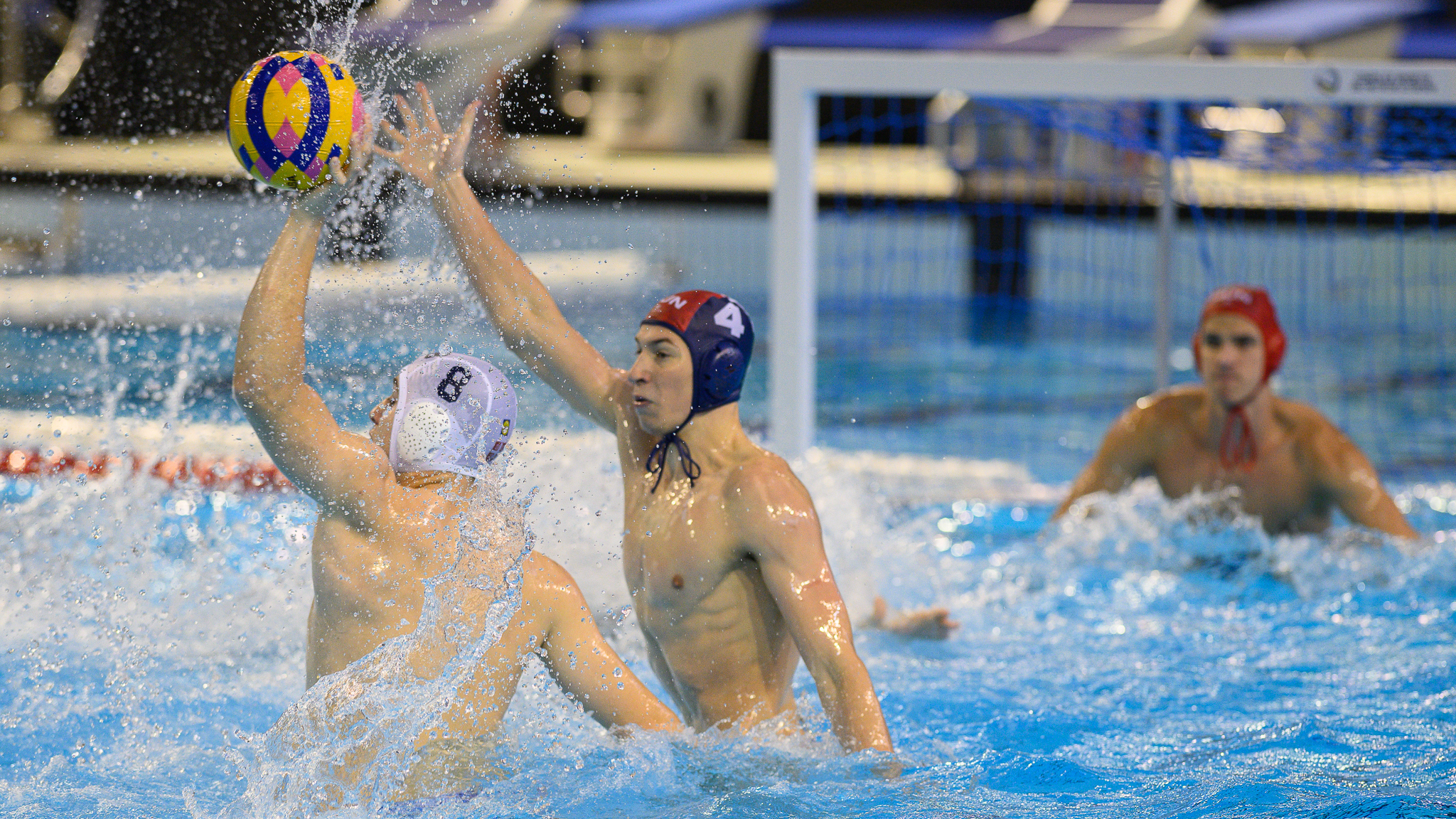
Hungary had a 1:0 and 3:1 in the first quarter. Still, Serbia successfully chased the rival, so the finalists were tied at 3:3 after eight minutes. Petar Stanic scored all three goals for Serbia in the first quarter, which is an interesting piece of information if we add the fact that he scored only two goals at the tournament before the final match.
Both team’s shot percentage went down in the second quarter. Akos Nagy put Hungary in front. In the middle of the quarter, Gladovic leveled at 4:4. Thirty seconds before the middle break, one of Serbia’s key players, Marko Dimitrijevic, committed a penalty foul and ended the game because it was his third exclusion. Vince Vigvari sent the ball into the net from the 5m line and Hungary had a slim advantage before the second half of the final.
After the middle break, the Hungarian juniors continued their series with two quick goals (Tatraiand Szalai). The Hungarians’ attack worked well in the third period, but the defensive play made the difference. Hungary’s defense was perfect in the third quarter. Goalkeeper Viktor Gyapjas was up to the task, but other players contributed significantly with many blocks. Besides, the Serbs hit the post and crossbar twice in this period. Serbia didn’t convert one double man-up in the 22nd minute when Vismeg blocked a shot from Martinovic. A minute after, Hungary earned a 6 on 5, and Akos Nagy converted it to a huge 8:4 lead.
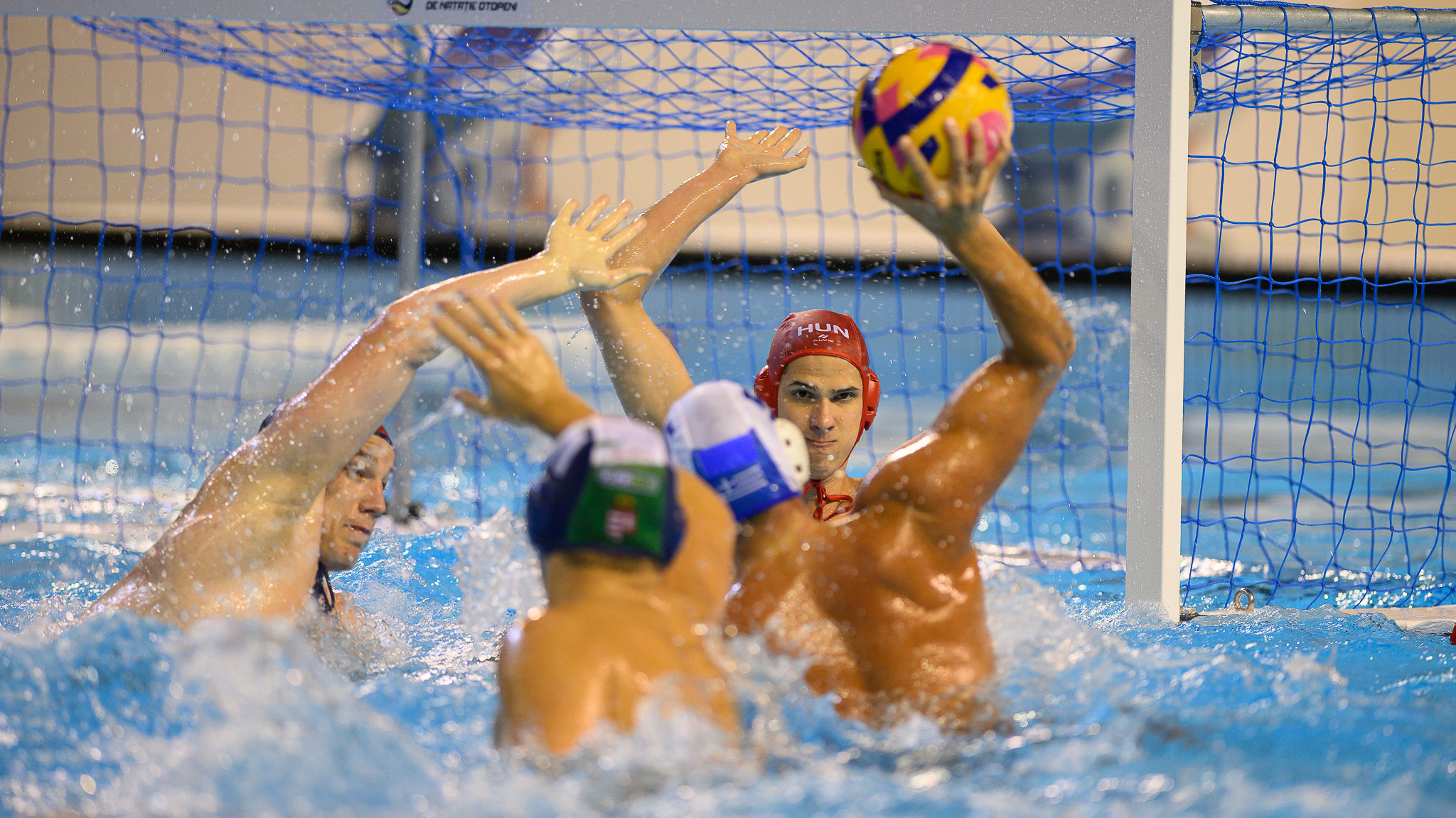
Hungary kept a 4-goal lead until the end of the third quarter, and it was just one small step far from the gold medal. The rhythm of the game didn’t change after the last break. Hungary’s defense was still very tight. In the 27th minute, David Tatrai fired the ball from more than six meters to make it 9:4 and the contest was practically over. The new champions added two goals before Serbia broke its deadlock. After seven consecutive goals by the Hungarians, two minutes and six seconds before the end, Urosevic scored an action goal for 5:11.
At the finish, the outgoing champions narrowed the distance to five.
Serbia’s percentage of shots was 23% (7/30), significantly worse than the Hungarians’ – 41% (12/29).
Hungary scored five action goals (5/18), and Serbia three (3/21). The teams were equal in the power play shots. Both scored four goals from seven attempts, but Hungary converted its chances when it was the most important. The Hungarians blocked seven shots, three more than Serbia.
Hungary’s goalkeeper Viktor Gyapjas blocked 9 shots, and Serbia’s Petar Pajkovic had six saves
All medalists
1981 (Milan): 1. USSR, 2. Cuba, 3. Hungary
1983 (Barcelona): 1. Spain, 2. Yugoslavia, 3. Cuba
1985 (Istanbul): 1. USSR, 2. Hungary, 3. Yugoslavia
1987 (Sao Paulo):1. Spain,2. Yugoslavia, 3. Italy
1989 (Narbonne): 1. Yugoslavia, 2. USSR, 3. East Germany
1991 (Irvine): 1. Spain 2. Cuba, 3. Hungary
1993 (Cairo): 1. Italy, 2. Spain, 3. Hungary
1995 (Dunkirk): 1. Hungary, 2. Greece, 3. Slovakia
1997 (Havana): 1. Croatia, 2. Hungary, 3. Greece
1999 (Kuwait): 1. Italy, 2. Australia, 3. Yugoslavia
2001 (Istanbul): 1. Greece, 2. Croatia, 3. Hungary
2003 (Naples): 1. Serbia and Montenegro, 2. Hungary, 3. Italy
2005 (Mar del Plata): 1. Serbia and Montenegro, 2. Croatia, 3. Spain
2007 (Long Beach): 1. Hungary, 2. Italy, 3. Croatia
2009 (Sibenik): 1. Croatia, 2. Greece, 3. Serbia
2011 (Volos): 1. Serbia, 2. Spain, 3. Greece
2013 (Szombhathely): 1. Italy, 2. Croatia, 3. Serbia
2015 (Almaty): 1. Serbia, 2. Italy, 3. Hungary
2017 (Belgrade): 1. Greece, 2. Croatia, 3. Serbia
2019 (Kuwait):1. Greece, 2. Serbia, 3. Italy
2021 (Prague): 1.Serbia, 2. Italy, 3. Montenegro
2023 (Otopeni): 1.Hungary, 2. Serbia, 3. USA
Articles about World men’s junior and youth championships
Follow us on Facebook, Twitter and Instagram. For more video content, subscribe to our Youtube Channel and Tik Tok account



